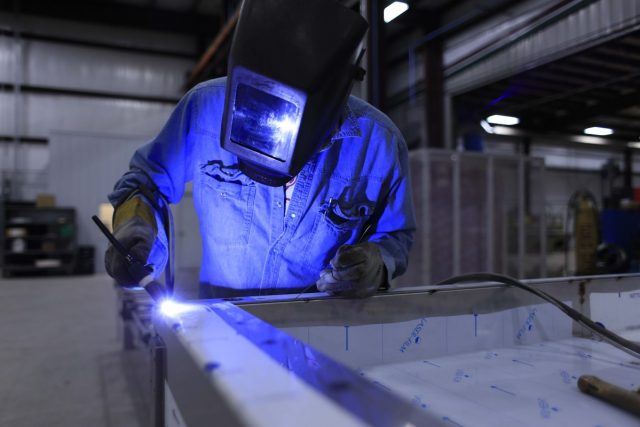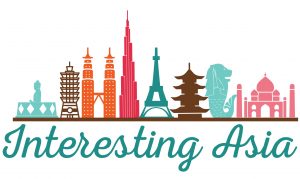
This article appeared in the Norway-Asia Business Review.
For businesses with supply chains in Southeast Asia, inspections are a necessity for compliance. However, with more firms adopting a policy of responsible business conduct, the role inspections have is coming under greater scrutiny.
Businesses with suppliers in Asia are familiar with the need to regularly inspect factories or operations to ensure they meet all required compliance guidelines, both those set forth by the company and local governments. And while the findings of these inspections are widely accepted, this doesn’t mean they are an effective practice.
“Inspections are not effective. Everyone focuses on inspections, but these don’t find the root cause if there is an issue. They only serve as a gap analysis,” Gunelie Winum, Senior Adviser at Responsible Business Advisors, states.
Ultimately, this process does a disservice to both buyers and suppliers, especially in Southeast Asia where problems keep arising from a desire to keep prices low. In some industries, such as apparel or manufacturing, buyers end up putting pressure on suppliers which forces them to cut corners or ignore labour and human rights guidelines. Even if the issue turns up in an inspection, it can be difficult to establish why it occurred or how the problem can be rectified.
“There are cases where an inspection finds employees working excessive hours, but doesn’t find out why. In the consumer industry, buyers can cause this because they require rushed orders which squeeze the lead time,” Winum explains. “They may also put pressure on their suppliers by demanding lower prices. The suppliers must find ways to meet these requests and oftentimes the solutions infringe on labour rights unless there are systems in place to prevent it from happening.”
The safety and quality assurance industry is estimated to be worth USD 150-250 billion globally, but Winum stresses its size shouldn’t be equated to its effectiveness. In fact, she believes that as the industry as grown, the more convoluted it has become.
One of the largest problems for suppliers is that preparing for inspections can be difficult if they work with multiple buyers. Each buyer tends to look for the same things during an inspection, but there will be small differences in guidelines and protocol. Suppliers end up needing to focus on what it takes to pass these inspections.
“For example, we found a factory in China had undergone 183 inspections in one year. Each inspection takes one-to-three days. This means they are basically being inspected all year round leaving little to no time to work on improvements,” Winum details.
From CSR to RBC

There are a number of supply chain issues facing firms who have operations in Southeast Asia despite guidelines being set up by both companies and governments to eliminate these. Current problems include labour standards, non-regular employment and forced labour. The troubles vary depending on the industry. For instance, the fishing industry struggles with migrant labour while the manufacturing industry has trouble maintaining standard labour conditions.
“Companies need to set clear guidelines on what is acceptable from their suppliers and follow up ensuring the guidelines are understood and followed. The understood part is what many businesses miss,” Winum says. “Legislation and regulations are in place in most countries, but aren’t always followed by suppliers who may not understand these. It’s up to buyers to explain guidelines to suppliers through training, dialogue and capacity building. Inspections alone cannot do this.”
This is why many companies have started adopting a policy of responsible business conduct (RBC). This had been known as corporate social responsibility (CSR) in the past, but the term is now associated with philanthropy and not necessarily core business. The key difference between RBC and CSR, according to Winum, is stakeholder engagement that assesses not only a firm’s own operations and that of its supplier, but the needs and wants of the employees, the surrounding community and others who may be impacted.
“Inspection and CSR efforts have become expected by the media and public, but these can lack methodology and don’t look at the root causes because there is no engagement with stakeholders,” Winum points out. “On the other hand, through RBC, businesses can see what issues exist and then take steps to eliminate them. It is a scenario in which both buyers and suppliers benefit.”
RBC sees buyers invest in capacity building, training and stakeholder engagement which can help make sure suppliers don’t infringe on human or labour rights. This has become more important with cases now being pursued by the Organisation for Economic Co-operation and Development (OCED). National contact points in member countries have been set up for reporting violations of human or labour rights.
Winum explains a company based within OCED jurisdiction with suppliers in Southeast Asia must be compliant with all guidelines and regulations. If they are not, they can be reported via OCED contact points in their home country who will investigate these claims. The process is far from perfect, but she stresses it is a step in the right direction.
“Repercussions are slowly starting to happen and we will see more and more of this. If you have systems in place to prevent rights violations, you aren’t likely to be punished. But if you don’t have any systems to check, then you will likely face consequences,” Winum states.
The benefits of RBC
Responsible Business Advisors has helped firms from a wide-range of industries make the transition from being inspection based to RBC focused. The shift from inspections to capacity building and a focus on good practices will require all parties to look at the business benefits.
“Suppliers can save hundreds of thousands of dollars by adopting better practices through the help of RBC,” Winum says. “Buyers can benefit because their suppliers will have better reporting data. They will also save resources by eliminating inspections and being more engaged with their suppliers through open dialogue.”
With a dedicated team based in the 100 countries they operate, Responsible Business Advisors is able to work with suppliers continuously and bridge the gap that can exist between factories or operation hubs and buyers. Whether it be through technologies like MicroBenefits, an online solution that helps with factory management, worker engagement and reporting, or assisting with on-site capacity building, the firm is dedicated to helping all stakeholders.
“There is no such thing as free compliance. There is always someone who pays. The ones paying for non-compliance today are the workers, the local community and the environment,” Winum notes.
She continues, “It really comes down to trust. Buyers and suppliers must trust each other and build a long-term relationship. RBC sees both parties involved and engaged in finding a positive solution since each one is invested in the process. This allows issues to be easily resolved and eliminated.”
Responsible Business Advisors is able to help companies build this trust which allows them to operate in ways that are good for business, the supply chain stakeholders as well as local people and the environment. Additionally, their oversight can ensure operations are kept in line with international norms and standards.
Drawing on broad experience in research and evaluations from the development field, Responsible Business Advisors also has the ability to find key performance indicators, monitor performance and impact, complete assessments and carry out other vital tasks that are in line with RBC.
“If you look at the big picture, adopting RBC by using external experts is the only way identify and eliminate human rights violations, labour issues or other problem that can occur along the supply chain,” Winum states. “It is also the best way to create meaningful stakeholder dialogue which leads to the tangible improvements all parties want. This is something that can get lost and lead to frustration.”
































